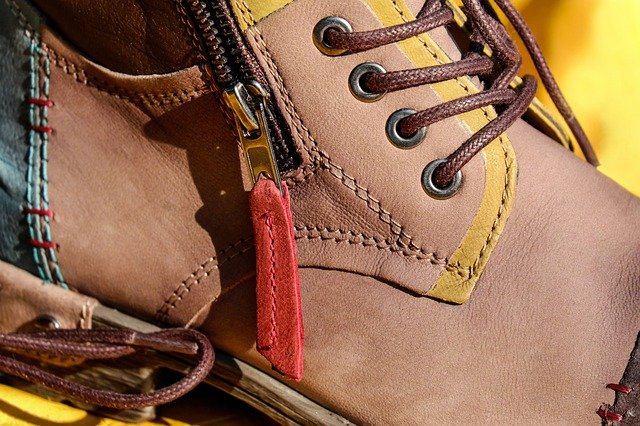Small Utility Trailers for Sale — A Practical Buying and Ownership Guide
Small utility trailers offer versatile solutions for hauling equipment, furniture, landscaping materials, and recreational gear. Whether you're a homeowner tackling weekend projects or a small business owner needing reliable transport, understanding the different types, features, and buying considerations helps ensure you make an informed purchase decision that meets your specific hauling needs.

Small utility trailers serve as indispensable tools for countless hauling tasks, from moving household items to transporting business equipment. These compact workhorses provide an affordable alternative to renting trucks or hiring delivery services, making them popular among homeowners, contractors, and outdoor enthusiasts alike.
Types and Uses: Selecting the Right Small Utility Trailer
Utility trailers come in several configurations designed for specific applications. Open trailers with mesh or solid sides excel at hauling yard waste, construction materials, and bulky items that don’t require weather protection. Enclosed trailers offer security and weather resistance, making them ideal for valuable tools, electronics, or items sensitive to moisture. Tilt trailers feature hydraulic or manual tilting mechanisms that simplify loading heavy equipment like ATVs or small machinery.
Specialty designs include landscape trailers with removable sides for easy loading of mulch or debris, motorcycle trailers with integrated wheel chocks and tie-down points, and dump trailers that hydraulically lift for quick unloading of gravel or dirt.
Key Features to Compare: Size, Payload Capacity and Construction
Trailer dimensions directly impact functionality and legal requirements. Common small utility trailer sizes range from 4x6 feet to 6x12 feet, with bed heights typically between 12 and 18 inches. Payload capacity varies significantly, from 1,000 pounds for lightweight models to over 3,500 pounds for heavy-duty versions. Always verify that your vehicle’s towing capacity exceeds the trailer’s gross vehicle weight rating.
Construction quality affects durability and longevity. Steel frames offer superior strength but require regular maintenance to prevent rust, while aluminum construction resists corrosion but costs more initially. Examine welding quality, axle specifications, and suspension components. Single-axle trailers provide better maneuverability, while tandem-axle designs distribute weight more evenly and offer redundancy if one tire fails.
Pricing and Where to Buy: New vs. Used, Dealers and Online Options
New small utility trailers typically range from $800 to $4,000, depending on size, construction, and features. Used trailers offer significant savings, with prices often 30-50% lower than comparable new models. However, used trailers require careful inspection to identify potential issues that could lead to costly repairs.
Dealerships provide warranties, financing options, and professional setup services, but often charge premium prices. Online marketplaces like Craigslist, Facebook Marketplace, and specialized trailer sites offer broader selection and competitive pricing but require more diligent buyer verification.
| Trailer Type | Size Range | Price Range (New) | Price Range (Used) |
|---|---|---|---|
| Basic Open Utility | 4x6 to 5x8 feet | $800-$1,500 | $400-$800 |
| Heavy-Duty Open | 5x10 to 6x12 feet | $1,200-$2,500 | $600-$1,400 |
| Enclosed Cargo | 4x6 to 6x10 feet | $1,800-$4,000 | $900-$2,200 |
| Dump Trailer | 5x8 to 6x10 feet | $2,000-$3,500 | $1,000-$2,000 |
Prices, rates, or cost estimates mentioned in this article are based on the latest available information but may change over time. Independent research is advised before making financial decisions.
Pre-Purchase Inspection Checklist and Questions to Ask
Before purchasing any trailer, conduct a thorough inspection of critical components. Check the frame for cracks, excessive rust, or poor repair work. Examine the coupler mechanism for wear and proper operation, ensuring it securely latches and releases. Inspect tires for even wear patterns, adequate tread depth, and proper inflation. Uneven wear may indicate alignment issues or bearing problems.
Verify that all lights function correctly, including brake lights, turn signals, and running lights. Test the electrical connection and inspect wiring for damage or corrosion. For trailers with brakes, ensure proper adjustment and fluid levels in hydraulic systems.
Ask sellers about maintenance history, previous usage patterns, and any known issues. Request documentation for recent repairs or part replacements. Verify that the title is clear and properly transferred, and confirm that the vehicle identification number matches all paperwork.
Maintenance, Registration and Safe Towing Practices
Regular maintenance extends trailer life and ensures safe operation. Inspect and repack wheel bearings annually or every 12,000 miles, whichever comes first. Check tire pressure monthly and rotate tires periodically to promote even wear. Lubricate the coupler, safety chains, and any moving parts according to manufacturer recommendations.
Registration requirements vary by jurisdiction, with some areas exempting trailers under specific weight thresholds while others require registration regardless of size. Contact your local motor vehicle department for specific requirements and fee structures.
Safe towing practices begin with proper weight distribution and securement. Load heavier items forward and low to maintain proper tongue weight, typically 10-15% of total trailer weight. Use appropriate tie-down straps rated for the load weight, and check securement periodically during transport. Adjust driving habits for increased stopping distances and reduced acceleration, especially when navigating hills or adverse weather conditions.
Small utility trailers represent practical investments for anyone requiring regular hauling capabilities. By understanding the various types available, comparing key features, and following proper buying and maintenance procedures, owners can enjoy years of reliable service from these versatile tools. Whether purchasing new or used, thorough research and careful inspection ensure you select a trailer that meets your specific needs while providing dependable performance for countless future projects.




